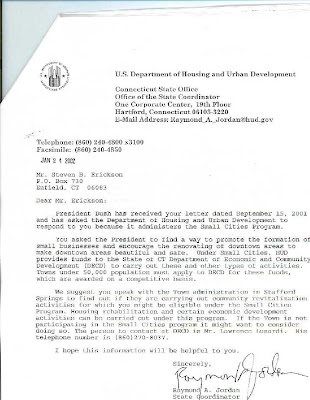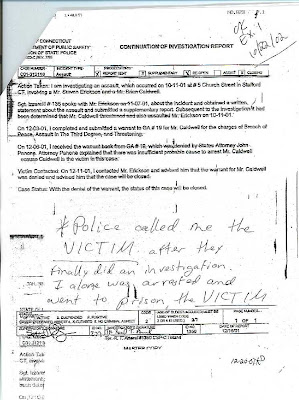Press Release
An assistant clerk of the Court told Doriss, two months was not an unusually short period of time for review. The rejection letter, dated and postmarked Nov. 17, arrived on Nov. 24 already opened, with no attempt to re-seal.
This was not the first time that official correspondence from the federal courts has arrived previously opened. The Court receives approximately 8,000 petitions per year for review. For the last decade or more, fewer than 100 are granted a hearing. This means that every year, over seven thousand, nine hundred petitioners are denied justice in what they feel are important cases in America. Many of these cases involve issues of Constitutionality and denial of civil and/or due process rights under the Bill of Rights.
Doriss claimed in his federal civil tort claim that he was falsely arrested in the City of New Haven multiple times and maliciously prosecuted by the State of Connecticut in the connection with two separate dog accidents involving his two dogs. The State hit him with thirteen criminal counts and 69 years prison in a classic case of "piling-on." Doriss beat eleven criminal charges, including nine felony, and 67 years prison through trial and jury verdict. This was a clear victory for Doriss, but the State chalked up two misdemeanor "wins" for its side, thus denying Doriss the complete exoneration to which he was entitled.
He walked out of court with two misdemeanor convictions, which he claimed were 'engineered" through tricks of jurisprudence and misuse of legal process employed by the Court in co-conspiracy with the State. Doriss claims seven of his Constitutional rights were violated repeatedly and viciously by the State in order to lock him up, illegally and unlawfully, for a very long time. Doriss claimed no crimes were committed by him in Connecticut. He claimed the State gave him a "kangaroo court," and the State assigned him "incompetent" counsel who were unable to achieve the complete and total exoneration to which he was entitled. Doriss claims, crimes were committed against him by City and State in violation of applicable RICO statutes. He claims the city and state have become a lawless land under governors Rowland and Rell, and Attorney General Richard Blumenthal.
The City and State have refused to acknowledge multiple mistakes and errors, or to correct them. Doriss was denied justice by three courts at the state level, and now he has been denied justice at three levels of the federal judiciary. Doriss claims the courts in America a broken and in a serious state of disarray when perfect legal storms such as this occur without the possibility of true remediation. He claims the courts routinely distort the English language--in effect using the occult language of legalese which is unintelligible to the average layman--to achieve a predetermined result, or no result whatsever. Doriss characterizes this language as legalistic gibberish and gobbledygook designed to obfuscate the issues and walk away from the responsibility for actually adjudicating cases on the merits and the law.
Doriss has nine years of higher education, including a doctor's degree and a B.A. in Philosophy (Lehigh University, 1966). Doriss claims the State punished him for refusing to plea-bargain under the Alford Doctrine. At Sentencing in New Haven, Doriss told the Court, "These charges are ridiculous, they're false, and they're untrue." Immediately after speaking these words, Judge Bernadette Conway sentenced him to two years prison over two dog incidents which the State either knew, or should have known, were nothing more than unfortunate but commonplace "accidents."
These developments are related to "Training is Scarce for State Prosecutors" and "Citing Workload, Public Lawyers Reject New Cases" (Both New York Times). Recommended reading: American Furies by Sasha Abramsky and the new book by Patrick O'Connor, The Framing of Mumia Abu Jamal. Doriss and family attended a reading by O'Connor and Prof. Johanna Fernandez last week at the New Haven book store, Labyrintine.
Doriss is now an activist for criminal justice and corrections reform, living on Cape Cod, where he sought political asylum from the lawless State of Connecticut. The true story of the persecution of William Doriss can be found at africanindependent.com/LAW_doriss_case1 and 2. He is now looking for an attorney or nonprofit organization which might be able to help him re-pen his cases at the state and/or federal levels. Hopefully, he will be able to do this under a new administration in Washington.
A five page "statement of the case" is available through e-mail or regular mail, pre-paid for $5.00. The entire 39-page petition, plus six cover pages, Questions Presented, and appendix is available through e-mail or regular mail, for $20.00, pre-paid.
Bill Doriss
YarmouthCourt, MA
508 685 0339











